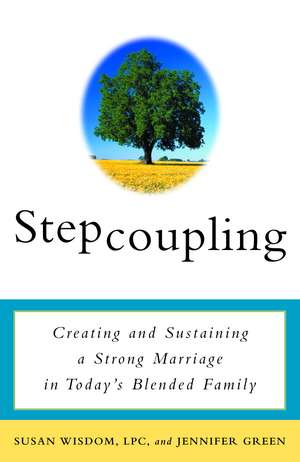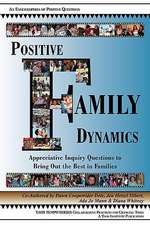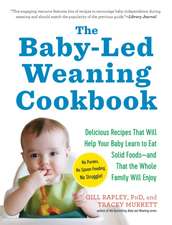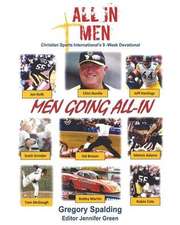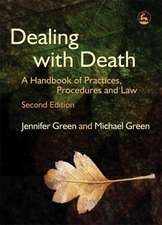Stepcoupling: Creating and Sustaining a Strong Marriage in Today's Blended Family
Autor Susan Wisdom, JENNIFER GREENen Limba Engleză Paperback – 31 ian 2002
Different parenting styles, finances, relationships with ex-spouses, legal matters, and even seemingly simple issues such as the kinds of chores assigned to children can chisel away at your union if you don’t always make your marriage a priority.
Stepcoupling offers advice for stepcouples on how to do just that—all the while strengthening their blended family with a healthy marriage. Susan Wisdom and Jennifer Green provide tips and strategies on dealing with the issues remarried couples face, with a wealth of advice from real-life stepcouples, such as:
* Learning to tailor your expectations of your spouse or children and remembering that no family is perfect
* Knowing where your boundaries are, whether involving a hostile ex-spouse or a stepchild who demands too much attention
* Realizing that traits like flexibility, tolerance, forgiveness, and openness are especially essential in a stepfamily situation
* Making “us” time for talking, problem-solving, weekends away, and enjoying your marriage to constantly renew and strengthen your bond as a couple
Let this invaluable remarriage manual help you make your stepcouple the foundation of a strong, happy, and successful stepfamily.
Preț: 95.29 lei
Nou
Puncte Express: 143
Preț estimativ în valută:
18.23€ • 19.09$ • 15.09£
18.23€ • 19.09$ • 15.09£
Carte disponibilă
Livrare economică 15-29 martie
Preluare comenzi: 021 569.72.76
Specificații
ISBN-13: 9780609807415
ISBN-10: 0609807412
Pagini: 272
Dimensiuni: 133 x 204 x 16 mm
Greutate: 0.2 kg
Editura: HARMONY
ISBN-10: 0609807412
Pagini: 272
Dimensiuni: 133 x 204 x 16 mm
Greutate: 0.2 kg
Editura: HARMONY
Notă biografică
SUSAN WISDOM, LPC, is a therapist who specializes in counseling divorcing adults and stepfamilies. She lives in Portland, Oregon.
JENNIFER GREEN is a freelance writer who lives in Salem, Oregon.
Both authors have been part of successful stepcouples for the past twenty-five years.
JENNIFER GREEN is a freelance writer who lives in Salem, Oregon.
Both authors have been part of successful stepcouples for the past twenty-five years.
Extras
Congratulations! You're Part of a Stepcouple
Annie and Mike sitting in a tree
K-I-S-S-I-N-G
First comes love
Then comes marriage
Then comes Annie with a baby carriage.
A stereotypical first marriage follows the rhyme. A wedding comes after romance, and babies arrive later. Lovers ease into family life, adding children over a period of years.
Unfortunately, for every two weddings celebrated in a given year, a divorce becomes final. And within five years of divorcing, 89 percent of men and 79 percent of women walk down the aisle again.
Second--or third or even fourth--marriages refute the rhyme. First come Mike and Annie pushing baby carriages. Love and a wedding follow, and the happy, harried couple sneaks k-i-s-s-i-n-g in when the kids aren't looking.
The scrambled verse describes stepcoupling. Adults get to know each other and build a healthy relationship while adjusting to, and combining, existing families.
It happens all the time. In the mid-1990s, one in three Americans was a stepparent, a stepchild, a stepsibling, or some other member of a stepfamily. Some predict that by the year 2007, stepfamilies will outnumber nuclear families.
Stepcouples face stresses that first couples don't: children (his, hers, and theirs), financial support of two or more households, custody and legal issues, and biological parents outside the home. Value conflicts and different parenting styles turn up the heat.
Statistics tell the story best. Of every ten couples who remarry, buoyed by love and renewed hope, six divorce yet again. The eventual success of the new family hinges on the quality and strength of the stepcouple's relationship. And the success of the stepcouple itself hinges on the willingness and ability of the partners to grapple with personal and family issues.
Few understand at the outset how complex and demanding stepcoupling is. Mary, remarried seven years, describes the early years of her stepfamily:
In the beginning, Bob and I and the four kids reeled from the effects of divorce. Looking back, the only reason we made it through the early part of our stepfamily was because we were such a strong couple. We had lots of problems. The kids fought all the time. My house was way too small for the six of us, and we couldn't afford a bigger one. A third of Bob's paycheck went to his ex-wife, so we barely made ends meet.
Neither of us wanted another divorce. We had to learn how to talk to each other, love each other, and stay together even when things got tough. Especially when things got tough. -- (Mary, thirty-four, stepcoupling for seven years)
Creating a stepfamily is like building a house. The stepcouple forms the foundation. If the relationship between partners is strong, the house makes it through the storms undamaged. If there are cracks in the foundation, the whole structure is in danger of collapsing.
Each member of a stepcouple must find ways to strengthen that foundation on a daily basis. Each must commit to the importance of "us" by setting aside time: for making love, sharing stories, solving conflict, laughing at private jokes, and dreaming about the future. Weekends away and other special occasions are grand, but they are not substitutes for daily connection. These simple moments will renew and strengthen the love that first drew you together.
A strong stepcouple also cultivates subtler habits that enhance their relationship.
When something significant happens in my life, Tom's the first person I tell. We talk on the phone at least once a day. He's my best friend. -- (Charon, forty-two, stepcoupling for four years)
I never leave the house without letting Nancy know where I'm going and when I'll be back. It's a small thing, but my first wife and I never did it. -- (Scott, thirty-four, stepcoupling for two years)
Larry gets irritated sometimes because I don't say "we" about things that involve the two of us. I try to remember to say "us" more. -- (Jane, forty-one, stepcoupling for one year)
Why would a stepcouple need to be reminded to take care of their relationship? On an individual level, many adults who stepcouple don't know how to nurture relationships. Previous marriages may have atrophied from neglect. Depending on your childhood experiences, you may not even know relationships require and deserve care.
The very stresses that are unique to stepcouples--tight budgets, parenting obligations and conflicts, and ex-spouses--distract you from paying attention to each other and your relationship. However, if you postpone caring for your bond until other issues resolve, it may be beyond repair when you turn your attention to it.
Daily concerns, the ones you'd also face if you were single, still divorced, or in your original marriage, also compete for your time: the demands of children, careers, aging parents, and household responsibilities.
Regardless of stress, distraction, or lack of time, caring for stepcoupling must come first. Nurturing your relationship is the most effective way to ensure the health and longevity of your marriage and stepfamily.
Yet, by definition, stepcoupling never occurs in isolation. Successful stepcouples strike a balance among caring for their individual needs, their relationship, and the requirements of the whole family. Finding this equilibrium is particularly challenging in the early years. Just for now, though, shut the door on everyone else and concentrate on the two of you.
I've been divorced for nine months and just started dating. I know I'll eventually want to remarry when I find the right woman, but I'm not ever going through another divorce. The next one's for keeps. How do I get ready for a new relationship?
Successful stepcoupling begins with a successful divorce, which takes time. Preparing for a new relationship by regrouping and reconnecting with yourself is wise.
Two key emotional tasks occur during and after divorce: grieving the loss of a marriage, and renegotiating a new relationship with your ex-spouse. Until you complete these tasks, you remain emotionally tied to a past mate.
Divorced adults begin clearing a path to repartnering by taking inventory of a past marriage's negative and positive aspects. Certainly it's easy to describe what went wrong in a marriage just after a divorce. Strong feelings--of anger, hurt, rejection, failure--loom large.
These same feelings make it difficult to go through the equally important process of grieving the loss of a marriage's good qualities. By reflecting on the elements of your relationship that worked for you, as well as those that didn't, you free yourself to say good-bye and move on.
Former spouses then renegotiate their relationship, moving from the bond of a married couple to the courtesy, respect, and cooperation of coparents. Boundaries change as a once-tight connection becomes businesslike. Ideally, a shared commitment--to whatever is in the best interest of the children--continues.
Once the emotional tasks of ending a marriage are well under way, work still remains before you're ready for a new relationship. Sound advice comes in a hackneyed phrase: get to know and appreciate yourself. Explore your likes and dislikes, needs, goals, strengths and weaknesses, the patterns of your relationships, and your part in creating them.
Shelly, thirty-two, undertook this process deliberately. She sought therapy because her husband asked for a divorce. During their five years of marriage he'd had a handful of affairs, finally asking for his freedom. Despite resenting Nick's infidelity, she still loved him and grieved deeply over the end of their marriage.
Nick and Shelly completed the legal work for their divorce within a few months; her emotional healing took longer. Moving through denial and waves of grief and anger, Shelly rode the emotional roller coaster that follows divorce. Eventually she began to develop interests she couldn't share with Nick. She spent more time alone; he had thrived on an active social life. She sold the home they'd built and bought a vintage bungalow. Months later, she used her property settlement to start a small business; later still, she realized that she was happier without Nick than she'd been during the last years of their marriage.
As time passed, Shelly started dating. By the time she met the man she eventually married, she had honed her self-awareness and self-esteem. She knew she both wanted and deserved fidelity in a marriage.
Like Shelly's, your preferences, style, and usual responses are unique. Some elements of your personality are "hardwired"--part of your nature. Others are learned responses to your early environment (nurture).
Start the ongoing process of becoming better acquainted with yourself by considering the following questions. You could also ask a trusted and tactful friend to share his or her impressions of you.
* What makes you happy? What makes you sad? What makes you angry?
* What energizes you? What takes energy from you?
* How comfortable with change are you?
* How patient are you? Are you easily frustrated?
* What type of people are you drawn to? What type of people repel you?
* What kind of people do you attract?
* What type of people are you most at ease with?
* How wide are your mood swings?
* Do you feel strongly that things should be done in certain ways? Are you open to other people's ways of doing things?
* When you're troubled, how do you prefer to work things through: alone or with others?
* List five qualities you like about yourself--be honest.
* List five things you don't like about yourself--be honest.
As you develop a clearer picture of who you are--your temperament and personality--begin to consider how you interact with others. You learned a lot about relationships as a child, and you carry that information, consciously or unconsciously, into adulthood.
Here's a list of questions to consider as you contemplate the influence your childhood experiences may have on your relationships.
* As a child, did you feel loved, valued and respected?
* What was it like to be a boy in your family? What was it like to be a girl in your family?
* What was your role in your childhood home? Caretaker? Peacemaker? Scapegoat? Good child? Troublemaker? Clown? Baby?
* Who had the most power in your childhood home? Who had the least?
* How did your family handle disagreements? Did your family fight openly, discuss conflict or hide it? How did you handle your emotions as a child?
* What did you learn about money? What did you learn about sex? About the roles of men and women? About alcohol and other drugs? About relationships?
* What was your parents' marriage like? Intimate? Distant? Affectionate? Hostile? Mutually supportive?
* Did your parents stay married to each other or were there divorces and remarriages?
* Did you experience stepfamily life as a child?
* If so, did you get along with and respect your stepparent(s)? Did he or she respect you? What kind of relationship did you have? Affectionate? Hostile? Supportive? Competitive?
* Did you have stepsiblings? How did you get along with them?
* What were your parents like as parents? Loving? Controlling and authoritarian? Empathetic? Physically and emotionally available? Aloof? Permissive? Absent?
* How did you know you were in trouble as a child? How were you disciplined?
Some childhood experiences make it harder to develop and maintain healthy relationships. Conclusions you drew about life based on early experiences might include: men always leave, married couples fight, marriage isn't forever, don't talk about feelings, lies are OK if you get away with them. If you have concerns in areas like these, this is a good time to address them with the help of a counselor.
No matter what beliefs you developed as a child, they profoundly affect your adult relationships. Here are a few examples:
After Fred divorced me, I was in mourning for our marriage, yet I started dating. I was still attracted to men like him, ones who teased me and put me down.
As a child, I'd done poorly in school and my family called me "stupid." I acted "stupid." I was the butt of Fred's jokes, too; I was used to it.
As I healed after my divorce, I outgrew acting dumb. My new circle of friends didn't see me as dumb, either. It didn't feel right to be around men--or anyone--who put me down.
When I met Bill, I was beginning to like myself. I knew I'd be fine alone. I was raising my children and supporting myself. He treated me like a competent woman, and I became more competent. I can barely remember what it felt like to be in my first marriage. -- (Sharon, fifty-six, stepcoupling for twenty-eight years)
Another voice on the same subject:
My dad provided for my mom and the kids--new cars, country club, nice vacations. My sisters married men who were good providers. So did I the first time. We did the things young couples on their way up do: big cars, big house, private schools.
The second time around I fell in love with a man who doesn't have as much money. We have the world's greatest relationship--love, sex, family, laughter, and lots of fun.
For two years, we fought about how much money Rick wasn't making. Until I got over my belief that men always provide for women, I couldn't fully enjoy our life. -- (Julie, forty-one, stepcoupling for four years)
Ideally, divorced adults become aware--of themselves and the influence of their history on their relationships--as they grow and venture out into the world of dating. In reality, though, many start new relationships before they know these issues even exist. Does that mean you missed the only opportunity to examine them?
Not at all. It's always important and never too late to revisit your past relationships, understand yourself better, and revise your beliefs and behavior as you tackle the challenges of stepcoupling. The sooner you begin this ongoing process, though, the better.
Annie and Mike sitting in a tree
K-I-S-S-I-N-G
First comes love
Then comes marriage
Then comes Annie with a baby carriage.
A stereotypical first marriage follows the rhyme. A wedding comes after romance, and babies arrive later. Lovers ease into family life, adding children over a period of years.
Unfortunately, for every two weddings celebrated in a given year, a divorce becomes final. And within five years of divorcing, 89 percent of men and 79 percent of women walk down the aisle again.
Second--or third or even fourth--marriages refute the rhyme. First come Mike and Annie pushing baby carriages. Love and a wedding follow, and the happy, harried couple sneaks k-i-s-s-i-n-g in when the kids aren't looking.
The scrambled verse describes stepcoupling. Adults get to know each other and build a healthy relationship while adjusting to, and combining, existing families.
It happens all the time. In the mid-1990s, one in three Americans was a stepparent, a stepchild, a stepsibling, or some other member of a stepfamily. Some predict that by the year 2007, stepfamilies will outnumber nuclear families.
Stepcouples face stresses that first couples don't: children (his, hers, and theirs), financial support of two or more households, custody and legal issues, and biological parents outside the home. Value conflicts and different parenting styles turn up the heat.
Statistics tell the story best. Of every ten couples who remarry, buoyed by love and renewed hope, six divorce yet again. The eventual success of the new family hinges on the quality and strength of the stepcouple's relationship. And the success of the stepcouple itself hinges on the willingness and ability of the partners to grapple with personal and family issues.
Few understand at the outset how complex and demanding stepcoupling is. Mary, remarried seven years, describes the early years of her stepfamily:
In the beginning, Bob and I and the four kids reeled from the effects of divorce. Looking back, the only reason we made it through the early part of our stepfamily was because we were such a strong couple. We had lots of problems. The kids fought all the time. My house was way too small for the six of us, and we couldn't afford a bigger one. A third of Bob's paycheck went to his ex-wife, so we barely made ends meet.
Neither of us wanted another divorce. We had to learn how to talk to each other, love each other, and stay together even when things got tough. Especially when things got tough. -- (Mary, thirty-four, stepcoupling for seven years)
Creating a stepfamily is like building a house. The stepcouple forms the foundation. If the relationship between partners is strong, the house makes it through the storms undamaged. If there are cracks in the foundation, the whole structure is in danger of collapsing.
Each member of a stepcouple must find ways to strengthen that foundation on a daily basis. Each must commit to the importance of "us" by setting aside time: for making love, sharing stories, solving conflict, laughing at private jokes, and dreaming about the future. Weekends away and other special occasions are grand, but they are not substitutes for daily connection. These simple moments will renew and strengthen the love that first drew you together.
A strong stepcouple also cultivates subtler habits that enhance their relationship.
When something significant happens in my life, Tom's the first person I tell. We talk on the phone at least once a day. He's my best friend. -- (Charon, forty-two, stepcoupling for four years)
I never leave the house without letting Nancy know where I'm going and when I'll be back. It's a small thing, but my first wife and I never did it. -- (Scott, thirty-four, stepcoupling for two years)
Larry gets irritated sometimes because I don't say "we" about things that involve the two of us. I try to remember to say "us" more. -- (Jane, forty-one, stepcoupling for one year)
Why would a stepcouple need to be reminded to take care of their relationship? On an individual level, many adults who stepcouple don't know how to nurture relationships. Previous marriages may have atrophied from neglect. Depending on your childhood experiences, you may not even know relationships require and deserve care.
The very stresses that are unique to stepcouples--tight budgets, parenting obligations and conflicts, and ex-spouses--distract you from paying attention to each other and your relationship. However, if you postpone caring for your bond until other issues resolve, it may be beyond repair when you turn your attention to it.
Daily concerns, the ones you'd also face if you were single, still divorced, or in your original marriage, also compete for your time: the demands of children, careers, aging parents, and household responsibilities.
Regardless of stress, distraction, or lack of time, caring for stepcoupling must come first. Nurturing your relationship is the most effective way to ensure the health and longevity of your marriage and stepfamily.
Yet, by definition, stepcoupling never occurs in isolation. Successful stepcouples strike a balance among caring for their individual needs, their relationship, and the requirements of the whole family. Finding this equilibrium is particularly challenging in the early years. Just for now, though, shut the door on everyone else and concentrate on the two of you.
I've been divorced for nine months and just started dating. I know I'll eventually want to remarry when I find the right woman, but I'm not ever going through another divorce. The next one's for keeps. How do I get ready for a new relationship?
Successful stepcoupling begins with a successful divorce, which takes time. Preparing for a new relationship by regrouping and reconnecting with yourself is wise.
Two key emotional tasks occur during and after divorce: grieving the loss of a marriage, and renegotiating a new relationship with your ex-spouse. Until you complete these tasks, you remain emotionally tied to a past mate.
Divorced adults begin clearing a path to repartnering by taking inventory of a past marriage's negative and positive aspects. Certainly it's easy to describe what went wrong in a marriage just after a divorce. Strong feelings--of anger, hurt, rejection, failure--loom large.
These same feelings make it difficult to go through the equally important process of grieving the loss of a marriage's good qualities. By reflecting on the elements of your relationship that worked for you, as well as those that didn't, you free yourself to say good-bye and move on.
Former spouses then renegotiate their relationship, moving from the bond of a married couple to the courtesy, respect, and cooperation of coparents. Boundaries change as a once-tight connection becomes businesslike. Ideally, a shared commitment--to whatever is in the best interest of the children--continues.
Once the emotional tasks of ending a marriage are well under way, work still remains before you're ready for a new relationship. Sound advice comes in a hackneyed phrase: get to know and appreciate yourself. Explore your likes and dislikes, needs, goals, strengths and weaknesses, the patterns of your relationships, and your part in creating them.
Shelly, thirty-two, undertook this process deliberately. She sought therapy because her husband asked for a divorce. During their five years of marriage he'd had a handful of affairs, finally asking for his freedom. Despite resenting Nick's infidelity, she still loved him and grieved deeply over the end of their marriage.
Nick and Shelly completed the legal work for their divorce within a few months; her emotional healing took longer. Moving through denial and waves of grief and anger, Shelly rode the emotional roller coaster that follows divorce. Eventually she began to develop interests she couldn't share with Nick. She spent more time alone; he had thrived on an active social life. She sold the home they'd built and bought a vintage bungalow. Months later, she used her property settlement to start a small business; later still, she realized that she was happier without Nick than she'd been during the last years of their marriage.
As time passed, Shelly started dating. By the time she met the man she eventually married, she had honed her self-awareness and self-esteem. She knew she both wanted and deserved fidelity in a marriage.
Like Shelly's, your preferences, style, and usual responses are unique. Some elements of your personality are "hardwired"--part of your nature. Others are learned responses to your early environment (nurture).
Start the ongoing process of becoming better acquainted with yourself by considering the following questions. You could also ask a trusted and tactful friend to share his or her impressions of you.
* What makes you happy? What makes you sad? What makes you angry?
* What energizes you? What takes energy from you?
* How comfortable with change are you?
* How patient are you? Are you easily frustrated?
* What type of people are you drawn to? What type of people repel you?
* What kind of people do you attract?
* What type of people are you most at ease with?
* How wide are your mood swings?
* Do you feel strongly that things should be done in certain ways? Are you open to other people's ways of doing things?
* When you're troubled, how do you prefer to work things through: alone or with others?
* List five qualities you like about yourself--be honest.
* List five things you don't like about yourself--be honest.
As you develop a clearer picture of who you are--your temperament and personality--begin to consider how you interact with others. You learned a lot about relationships as a child, and you carry that information, consciously or unconsciously, into adulthood.
Here's a list of questions to consider as you contemplate the influence your childhood experiences may have on your relationships.
* As a child, did you feel loved, valued and respected?
* What was it like to be a boy in your family? What was it like to be a girl in your family?
* What was your role in your childhood home? Caretaker? Peacemaker? Scapegoat? Good child? Troublemaker? Clown? Baby?
* Who had the most power in your childhood home? Who had the least?
* How did your family handle disagreements? Did your family fight openly, discuss conflict or hide it? How did you handle your emotions as a child?
* What did you learn about money? What did you learn about sex? About the roles of men and women? About alcohol and other drugs? About relationships?
* What was your parents' marriage like? Intimate? Distant? Affectionate? Hostile? Mutually supportive?
* Did your parents stay married to each other or were there divorces and remarriages?
* Did you experience stepfamily life as a child?
* If so, did you get along with and respect your stepparent(s)? Did he or she respect you? What kind of relationship did you have? Affectionate? Hostile? Supportive? Competitive?
* Did you have stepsiblings? How did you get along with them?
* What were your parents like as parents? Loving? Controlling and authoritarian? Empathetic? Physically and emotionally available? Aloof? Permissive? Absent?
* How did you know you were in trouble as a child? How were you disciplined?
Some childhood experiences make it harder to develop and maintain healthy relationships. Conclusions you drew about life based on early experiences might include: men always leave, married couples fight, marriage isn't forever, don't talk about feelings, lies are OK if you get away with them. If you have concerns in areas like these, this is a good time to address them with the help of a counselor.
No matter what beliefs you developed as a child, they profoundly affect your adult relationships. Here are a few examples:
After Fred divorced me, I was in mourning for our marriage, yet I started dating. I was still attracted to men like him, ones who teased me and put me down.
As a child, I'd done poorly in school and my family called me "stupid." I acted "stupid." I was the butt of Fred's jokes, too; I was used to it.
As I healed after my divorce, I outgrew acting dumb. My new circle of friends didn't see me as dumb, either. It didn't feel right to be around men--or anyone--who put me down.
When I met Bill, I was beginning to like myself. I knew I'd be fine alone. I was raising my children and supporting myself. He treated me like a competent woman, and I became more competent. I can barely remember what it felt like to be in my first marriage. -- (Sharon, fifty-six, stepcoupling for twenty-eight years)
Another voice on the same subject:
My dad provided for my mom and the kids--new cars, country club, nice vacations. My sisters married men who were good providers. So did I the first time. We did the things young couples on their way up do: big cars, big house, private schools.
The second time around I fell in love with a man who doesn't have as much money. We have the world's greatest relationship--love, sex, family, laughter, and lots of fun.
For two years, we fought about how much money Rick wasn't making. Until I got over my belief that men always provide for women, I couldn't fully enjoy our life. -- (Julie, forty-one, stepcoupling for four years)
Ideally, divorced adults become aware--of themselves and the influence of their history on their relationships--as they grow and venture out into the world of dating. In reality, though, many start new relationships before they know these issues even exist. Does that mean you missed the only opportunity to examine them?
Not at all. It's always important and never too late to revisit your past relationships, understand yourself better, and revise your beliefs and behavior as you tackle the challenges of stepcoupling. The sooner you begin this ongoing process, though, the better.
Cuprins
One. Congratulations! You're Part of a Stepcouple
Two. Tailoring Your Expectations of your Spouse and Family
Three. Shaping and Knowing Your Own Boundaries
Four. Rewriting Roles: A Feat of Family Acrobatics
Five. Blending Your Sometimes Opposing Styles
Six. Embracing Values: Your Own and Your Partner's
Seven. Empowering Everyone: The Key to Stepcoupling Success
Eight. Looking Back: One Stepcouple's Story
Resources for Stepcouples
Organizations
Websites
Bibliography
Index
Two. Tailoring Your Expectations of your Spouse and Family
Three. Shaping and Knowing Your Own Boundaries
Four. Rewriting Roles: A Feat of Family Acrobatics
Five. Blending Your Sometimes Opposing Styles
Six. Embracing Values: Your Own and Your Partner's
Seven. Empowering Everyone: The Key to Stepcoupling Success
Eight. Looking Back: One Stepcouple's Story
Resources for Stepcouples
Organizations
Websites
Bibliography
Index
